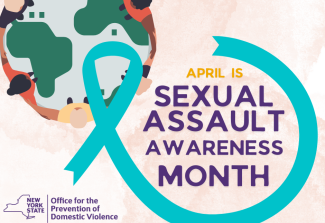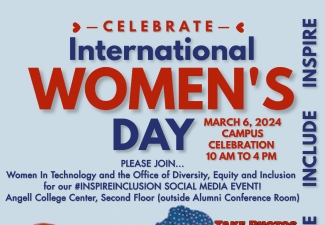Aphasia Choir Helps Language Impaired | SUNY Plattsburgh
“No previous musical experience is necessary,” she said. “Our main goal in rehearsals is to have fun.”
A grant from local Champlain Valley Physicians Hospital to the SUNY Plattsburgh Speech and Hearing Center has placed on center stage some brain-injured folks who love to sing.
The Aphasia Choir was formed at the beginning of the fall 2017 semester to help clients and members of the public who have a language impairment. A $1,200 CVPH Foundation grant allowed Deborah Orlofsky, clinical director of the speech and hearing center, and Rebecca Stewart, first-year graduate student in speech and hearing, to purchase materials.
Stewart, who holds a bachelor’s degree in education and another in music from McGill University in Montreal, said she became a full-time music teacher after college.
“It was while working with children with special needs that I began to wonder about
further benefits music may have,” she said. “Both music and language have been found
to be the first things we remember and learn.”
Affects Speech
Aphasia, most often caused by a stroke, affects speech, its comprehension, and the ability to read or write. It can also be caused by a traumatic brain injury, tumors or infections.
“However, for most people, their ability to sing remains intact,” Stewart said. She learned about the use of music in aphasia therapy. “My mind quickly thought of this type of therapy in a group format, which then led me to think of a choir.”
Stewart was awaiting word on her acceptance into the graduate program at SUNY Plattsburgh when she began to research aphasia choirs and reached out to a professor in Texas who was doing this therapy. Once accepted into the program, she then approached program director, Dr. Suzanne Hungerford; department chair, Dr. Patrick Coppens; and Orlofsky.
“The professors fully supported the idea and bean planning on its implementation into the program for the fall semester,” she said.
Coppens said they supported the idea because it was a natural outgrowth of the program.
‘We Want Them to Sing’
“It’s therapy,” he said. “We want them to sing. It’s also a chance for socialization and interaction.”
While most common in the older population, strokes and traumatic brain injury can occur at any age.
And unlike therapy for an injured muscle, which can result in a return to range of motion, this kind of therapy can’t bring the brain back “like it was before,” Coppens said.
“That doesn’t happen. Improvement is always a possibility, but a return to total ‘normalcy’ is rarer,” he said. “Part of the brain has been destroyed, but it can be re-organized.”
“Parts of the brain that didn’t deal with language start to take over,” Orlofsky said.
And during choir practice, that improvement shows as Stewart stands at her electric piano directing the clients and their graduate-student assistants in their choruses of popular Christmas carols. The choir is practicing for a holiday choral concert Friday, Dec. 8 at 1 p.m. at the Starbucks in Sibley Hall near the hospitality management department and Samuel D’s.
“The first session of the semester was incredible,” Stewart said. “Choir members and their clinicians danced to a song and hugged each other at the end of the session. We don’t know what benefits the choir members are receiving, but I am encouraged.”
Hungerford said they distributed fliers around the area encouraging people to join.
No Experience Necessary
“They don’t have to have experience singing; they don’t have to read music. We say, ‘Shower singers are welcome,’” she said.
The choir benefits not only the clients with aphasia but the graduate students who work with them as well.
“It gives them (the students) another opportunity to have time with people who have language impairment,” Hungerford said. “We do two other community groups in our clinic, but this is the only one where they sing.”
There is no fee for the speech and language clinics, she said. No fees. No financial criteria.
“We accept donations, but this is part of the college, and it’s part of the communication disorders and sciences program so students benefit directly,” Hungerford said.
“Anyone with aphasia is welcome to join the choir,” Stewart said. After the Dec. 8 concert, sessions will start back up the second week in February.
News

SUNY Recognizes Two Plattsburgh Seniors for Excellence in Academics, Leadership

Sexual Assault Awareness Month Events Planned Throughout April
‘Day of Visibility’ Recognizes, Highlights Members of Transgender Community
SBE Teams with CVPH Medical Center to Train Management Personnel
